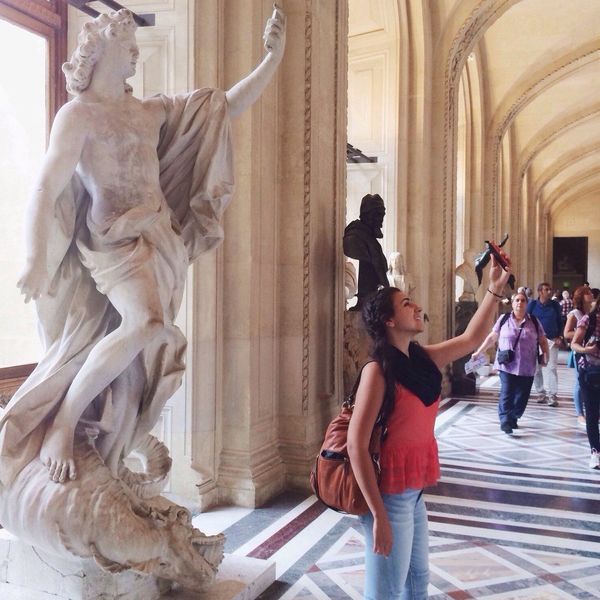Everyone has a passion; something they love, something they're good at, something that makes them happy. For some, this passion may be a specific field of study. So they take classes, they learn more about it, and eventually, they go to college to pursue a job in it. The world offers so many options for careers in science, math, and English. But what about those who found their passion in something else, something less academic?
I found my passion for art at an early age. I remember fondly the palms of my hands being stained with graphite as I brushed a mess of pencil shavings from my desk, a pile of crumpled papers grew and filled the corner of my room, reminding me of every mistake I’d made in the last hour. When I draw, time almost becomes irrelevant, limitless, as this art allows for a twisted, creative interpretation of my reality.
As I grew up, I never found myself really connecting to any classes that I took. I never wanted to be a doctor, a lawyer, or a teacher like many of my peers did. But I didn't know if I wanted to be an artist either, because all my life I was familiar with this stigma that follows a career in art. A common claim is that art is not a practical career. Everyone assumes that, in pursuing an art major, you'll end up broke, living either on the street or, if you're lucky, in your parents' basement.
This stigma made me hesitant to follow my dreams and apply to art schools. I ended up applying to schools that offered classes in business, education, and psychology, so that I could be sure that I had the options available in order to work towards a "realistic" career.
As I settled into my first semester at a liberal arts college, I realized how many people strayed away from what I assumed was the conventional path in a college education. I met people who were studying to become photographers, artists, singers, and actors. That's when I realized that, if they can pursue their passions, why can't I?
My mother constantly reminds me of a time when she planned to go to art school, but was held back by her parents' interpretation of what a degree in art would allow her to do in life. She was forced to study a field which she didn't enjoy, and missed out on an opportunity to focus on her own passion. She has made it known to me that what I decide to study is entirely my own choice. Additionally, if I plan to pursue an major in art, she will support me every step of the way because she knows how much happiness it brings me.
At this point, I've been working constantly to compile a portfolio of my artwork in order to apply to an art program so that I can continue to follow my dreams. I do wish, however, that I had made this realization sooner so I could be actively studying what I plan to spend the rest of my life doing.
In short, it's important to follow your dreams. Artists are just as important as teachers and lawyers; where would we be if no one designed the buildings in which we live, or the cars we drive? Art is more than scribbled cartoons on an Applebee's napkin, it's what stands to create a more beautiful environment, as well as a form of entertainment to children and adults alike.





















